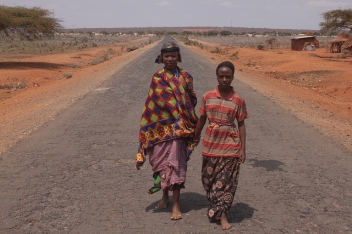 A future commitment to slash greenhouse gas emissions is “the defining issue” of COP17. So said Christiana Figueres, the UN’s lead climate official, in front of delegates from over 190 countries who have gathered for the conference in South Africa.
A future commitment to slash greenhouse gas emissions is “the defining issue” of COP17. So said Christiana Figueres, the UN’s lead climate official, in front of delegates from over 190 countries who have gathered for the conference in South Africa.
The location of the conference is significant as it is neither a secret nor a myth that Africa will be heavily affected by climate change.
There are therefore expectations that this African COP17 will deliver substantial progress in strengthening the international community’s approach towards climate change adaptation.
Future of an extended Kyoto
However, the reality is somewhat different. There have already been many issues surrounding the future of the Kyoto Protocol, for instance:
- What legal form will it take?
- What will be the timeline?
- Who will make the required cuts?
- How do we persuade nations that don’t want an agreement?
The lack of commitment to a second term of agreed emission targets from some of the world biggest economies puts the future of Kyoto in real doubt. However, many nations are in favour. Denmark, for example, has just set the most ambitious targets in the world, having planned for a 40% reduction on 1990 emissions levels by 2020.
Developing countries are also making calls for tougher cuts from developed countries. However, these calls are likely to fall on deaf ears. Early reports from COP17 on the “Green Climate Fund” – established at Cancun to help developing countries adapt to climate change – do not sound promising.
They suggest that the US, Venezuela and Saudi Arabia have refused to accept a draft plan for the US$100bn fund. The Saudi delegation even released a statement claiming they will “never contribute” to the fund.
Older people’s vulnerabilities
So where do older men and women fit into the climate change debate? How are they affected? What can they contribute to help overcome the problem?
Older men and women are some of the most vulnerable people in disasters. Their vulnerability is due to age-related issues such as chronic diseases, reduced mobility and strength, and impaired sight and hearing. High levels of migration leave them even more vulnerable, as they are often left behind to care for grandchildren in environmentally risky conditions.
Unfortunately, this precarious situation is likely to worsen. By 2050, the number of people over 60 will reach two billion (22% of world’s population). Over 80% of the world’s older people will be in developing countries (compared to 60% today), where vulnerability to changes in climate and natural disasters is at its highest.
Older people can help as we adapt to climate change
However, older people can and do make positive contributions as we adapt to climate change. HelpAge works with older people on disaster risk reduction programmes, where they take on an active role in their communities. They make preparations to protect themselves and their communities from natural disasters and reduce the risk of them happening. This may be through hazard and vulnerability mapping, being trained in emergency distributions or providing post-disaster counselling.
It is a widely held misconception that because the climate is changing, older people’s knowledge is now obsolete. However, we have seen how older people’s experiences of disasters and their knowledge of coping mechanisms can be critical when developing local disaster risk reduction and adaptation plans.
Indeed, older people’s knowledge of the local environment, its vulnerabilities and how the community responds to it still holds strong. This is something that scientific information on a more macro scale cannot always provide.
Additionally, older people often have much greater attachment to places and therefore have a deeper understanding of the need to manage their environment. An example of this is our project in Bolivia, where older people put forward an ancient water management technique called “camellones” to help adapt to the increasingly dry conditions.
What should be done
Older people must be protected from natural disasters, included in future planning to adapt to climate change and have their contributions acknowledged.
We are therefore calling for the following outcomes from COP17:
- Recognition of older people’s specific vulnerabilities.
- A commitment to factor population ageing into mitigation and adaptation planning.
- Recognition by governments and civil society of the importance of older people’s knowledge, in partnership with modern scientific understanding.
- Inclusion and consultation of older people in disaster risk reduction and climate change adaptation plans.
Read more about our work on climate change and disaster risk reduction
